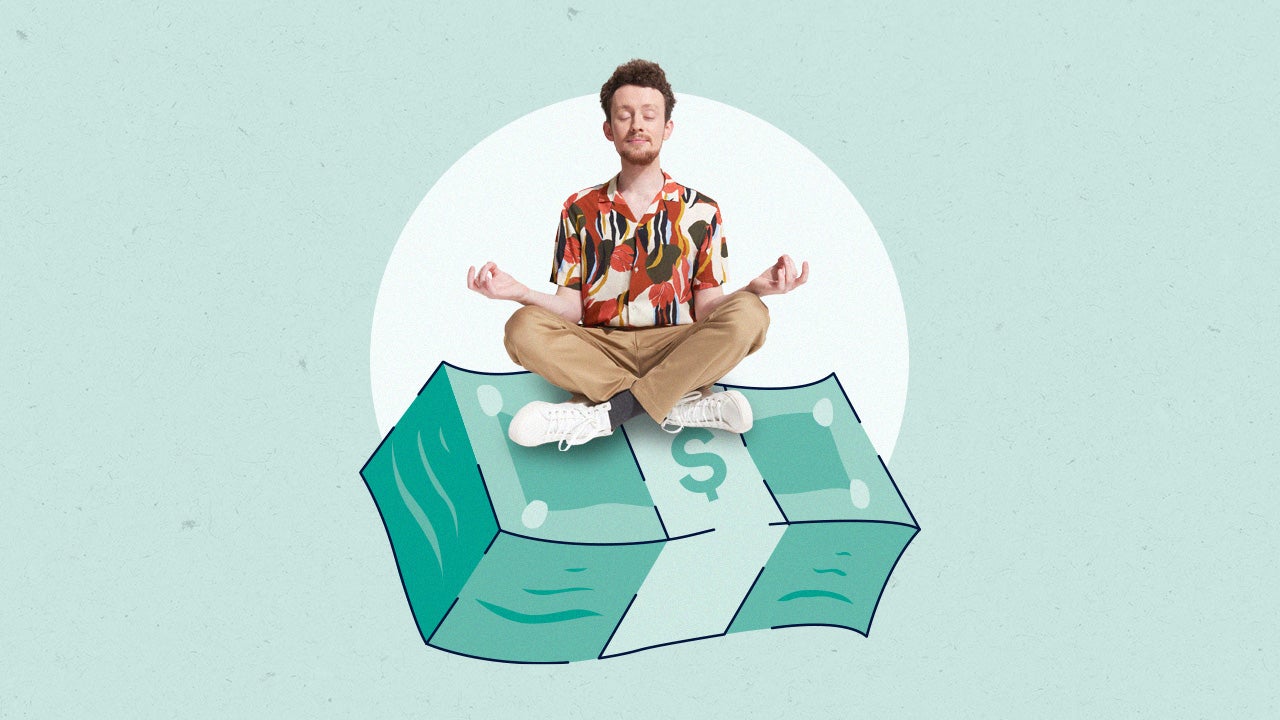How to stay out of debt



Staying out of debt — whether you’ve just paid off debt, are currently paying off debt or want to avoid debt altogether — can help you keep your finances stable and allow you to save money for the future.
However, in a world full of credit cards, quick-process loans and buy-now, pay-later plans, avoiding debt can seem trickier than ever.
While avoiding debt isn’t always feasible, you can avoid taking on bad debt. Instead, use financing and financial resources smartly through budgeting, education and research.
Build a budget and stick to it
Your monthly budget will continue to play an important role in your finances even after you pay off your debt. Tracking your expenses, staying within your means and saving money each month will set you up for long-term success and help you avoid going into debt to cover your needs.
If you haven’t already, look at your monthly income and expenses. Track your expenses and compare them to your income. Consider budgeting worksheets and apps available online and through banks and credit card providers.
You can also apply a budgeting philosophy, such as the 50-30-20 rule. The right approach for you will depend on your goals and lifestyle.
Ultimately, having and sticking to a budget can help prevent overspending and accumulating too much credit card balance. It can also help you achieve financial goals like building an emergency fund or saving for a house while leaving room for non-essential expenses.
Treat your credit card like a debit card
Nearly half (44 percent) of cardholders surveyed by Bankrate stated they carried a credit card balance from month to month.
Even when you make the monthly payment and avoid fees and missed payment reports on your credit report, carrying a balance can come with a steep price in interest, especially as the average APR remains high.
Fortunately, you can avoid raising interest on your credit card by not carrying a balance.
Paying off the balance each month can allow you to take advantage of a credit card’s rewards, build a positive credit history, and avoid paying late fees or APR. You’ll also keep your credit utilization ratio low, which can help boost your credit score.
The key to paying off your balance each month is to keep your spending within your means. If you track your budget and income, you should know how much you can afford each month.
You can track your expenses with budgeting apps, or by using the budget tools your credit card provider may offer on the app or website. You can also set spending, payment and balance alerts with your provider. This way, you can be informed when you’re close to your spending limit and when your balance payment is due.
Something important to remember is that your spending shouldn’t be strictly correlated with your credit limit. While your limit is based on your income, your credit score, payment history and other factors, it’s not a good idea to use your credit limit as a benchmark for your spending limit.
Instead, see how much you can afford on your budget and stick to that number.
Have an emergency fund in place
An emergency fund is a crucial tool for staying out of debt. It can help you cover unexpected emergencies without maxing out your credit card or taking out a loan.
As a rule of thumb, your emergency fund should cover three to six months’ essential expenses, including housing, utility, transportation and grocery costs. You should use your emergency fund for expenses you can’t pay with your immediate monthly income, such as an unexpected hospital bill or an expensive car repair.
Your emergency fund should be kept in a readily accessible location like a high-yield savings account or a money market account. A certificate of deposit or an investment fund may take too long for you to get the money. The goal is to access the funds quickly if needed.
While keeping several months’ worth of expenses handy may seem like a big ask, saving every month can go a long way. Like with paying off debt, setting a savings goal, building a timeline and dedicating a set amount to save each month can help you build up an emergency fund efficiently.
Depending on how much you can save, you can also have separate emergency funds for certain situations. Consider having enough money to cover your car or health insurance deductible and out-of-pocket maximum, for example.
Build backup plans
An emergency fund shouldn’t be the only safety net when the unexpected happens. Having backup plans for your job, childcare, transportation and other expenses can help lessen the effects of an emergency.
If you’re employed, it’s a good idea to keep your job network and resume updated so you can hit the ground running in the case of a job loss. A side gig like ride-sharing or an online business can also supplement your emergency fund and become a temporary job while you get back on your feet.
A support network can also play a crucial role in tough times. Friends, family and your local community can help pitch in with childcare, grocery sharing and transportation. Building a network now can be helpful in the long run, so it’s a good idea to start making connections before a crisis happens.
Know your options
If you must take on unsecured debt, consider exploring other options to save you on interest and help manage your monthly payments.
For example, if you’ve been sent a medical bill you can’t afford, contact the facility’s billing department. You may be able to negotiate a reduced balance or set up an interest-free payment plan based on your income. That can save you money in medical loan or credit card interest.
Financial aid can help you reduce the cost of several types of loans. If you’re applying for student loans, fill out the Free Application for Federal Student Aid (FAFSA). It can qualify you for federal loans, scholarships and other aid. You can also apply for scholarships and financial aid through your school or third-party organizations.
If you have a large credit card balance and a good credit score, you may consider taking out a balance transfer credit card. A balance transfer card allows you to shift your credit card debt to your new card with a 0 percent APR for a limited introductory period, giving you time to pay off the debt without incurring interest.
When researching alternatives to taking out a loan, be sure to do your research and read the fine print to make sure you’re getting a good deal. Unfortunately, many predatory lenders and financial schemes offer seemingly low interest rates or quick approval, only to incur high hidden fees, high rates or negative amortization.
Understand that all debt isn’t bad
While paying off debt may make you want to avoid all debt at all costs, it’s important to remember that debt can be a valuable financial tool.
The key is knowing how to differentiate between “good” and “bad” debt.
Good debt is a long-term investment that builds value over time. Student loans can help you increase your income through accreditation and education. A business loan can help you build a profitable business, and a mortgage can allow you to buy a house that will appreciate over time.
With the value gained from going into good debt, you can pay off your loan and increase your long-term wealth.
Bad debt, on the other hand, pays for something that won’t increase in value over time. Credit card debt is one of the most common examples.
Instead of avoiding debt altogether, consider the pros and cons of taking on a loan. Consider how your debt can serve you in the long run and if your long-term finances will improve.
Take on debt the smart way
Taking on a loan with a clear goal and timeline can help you manage your debt payments and avoid taking on debt for impulsive reasons.
When you decide to take out a loan, be sure to do so with a clear idea of:
- Why you need the loan. Borrowing money simply for the sake of having cash means you’ll be needlessly paying interest. Instead, know the purpose of your debt before you take out a loan.
- How the loan will help you financially. Ideally, you want to take on good debt to increase your long-term wealth.
- Exactly how much money you need to borrow. Even if you qualify for more, don’t borrow more than you need. Every dollar in your initial balance means a higher interest charge.
- If you’re getting a good deal on the interest and fees. Don’t be afraid to shop around and compare.
- How much your monthly payment will be. An unaffordable payment or a payment that leaves you financially strapped isn’t a payment you’ll want to have to pay.
- What the amortization will be like. Beware of interest-only or low payments that won’t pay down your principal.
- When you’ll be able to pay the loan off. Having a timeline in mind will let you plan for the future and keep an endpoint in sight.
- How you’ll cover the monthly payment if you lose your income. This can help you avoid missing a payment and racking up fees and negative entries on your credit report.
By keeping these guidelines in mind, you can take on debt with a clear idea and the means to pay it off, avoiding becoming trapped by your payments and allowing you to make the most of your loan.
Be wary of debt deals
Just because a loan sounds like a good deal doesn’t mean you should take it on.
As mentioned above, loans should be used for intentional, long-term investments and assets that will pay off in the long run. Taking on debt impulsively, even if it sounds like a one-of-a-kind offer, is a recipe for an unwanted monthly payment and wasted money on fees and interest.
For example, if you aren’t in the market for a new car, there’s no reason to take out an auto loan to buy a truck you don’t need, even if the dealer offers you 0 percent APR for the first six months.
Not only will you make an unnecessary purchase, but your monthly payment will increase once the introductory period is up. Your car’s value will likely depreciate, leaving you with the loan balance if you have to sell.
Buy-now, pay-later might seem like a tempting, interest-free way to splurge on new clothes or food delivery, but if you can’t afford the expense in the first place, why saddle yourself with a payment later down the line?
Taking on a loan you can’t afford can have serious consequences for your savings, credit score and long-term finances. It’s better to take on debt as you need it and with a clear idea of how to pay it off instead of jumping on a “good deal” without thinking it through.
What next?
Staying out of debt is one of the ways you can establish good financial habits, save money on interest and keep your options open for future financial goals. While you don’t necessarily need to avoid debt at all costs, going into debt with a solid budget, an emergency fund, backup plans and a clear idea of how to pay it off can set you up for success as you pay off your balance.
If you want to learn more about managing your finances, mental health and debt repayment plan, check out Bankrate and National Debt Relief’s ongoing article series about all things debt. Watch this space for tips, tricks and exclusive stories from readers like you and their debt repayment journeys.
Why we ask for feedback Your feedback helps us improve our content and services. It takes less than a minute to complete.
Your responses are anonymous and will only be used for improving our website.
You may also like

5 tips to manage a startup business loan

How to make a zero-based budget

How to build credit without going into debt




